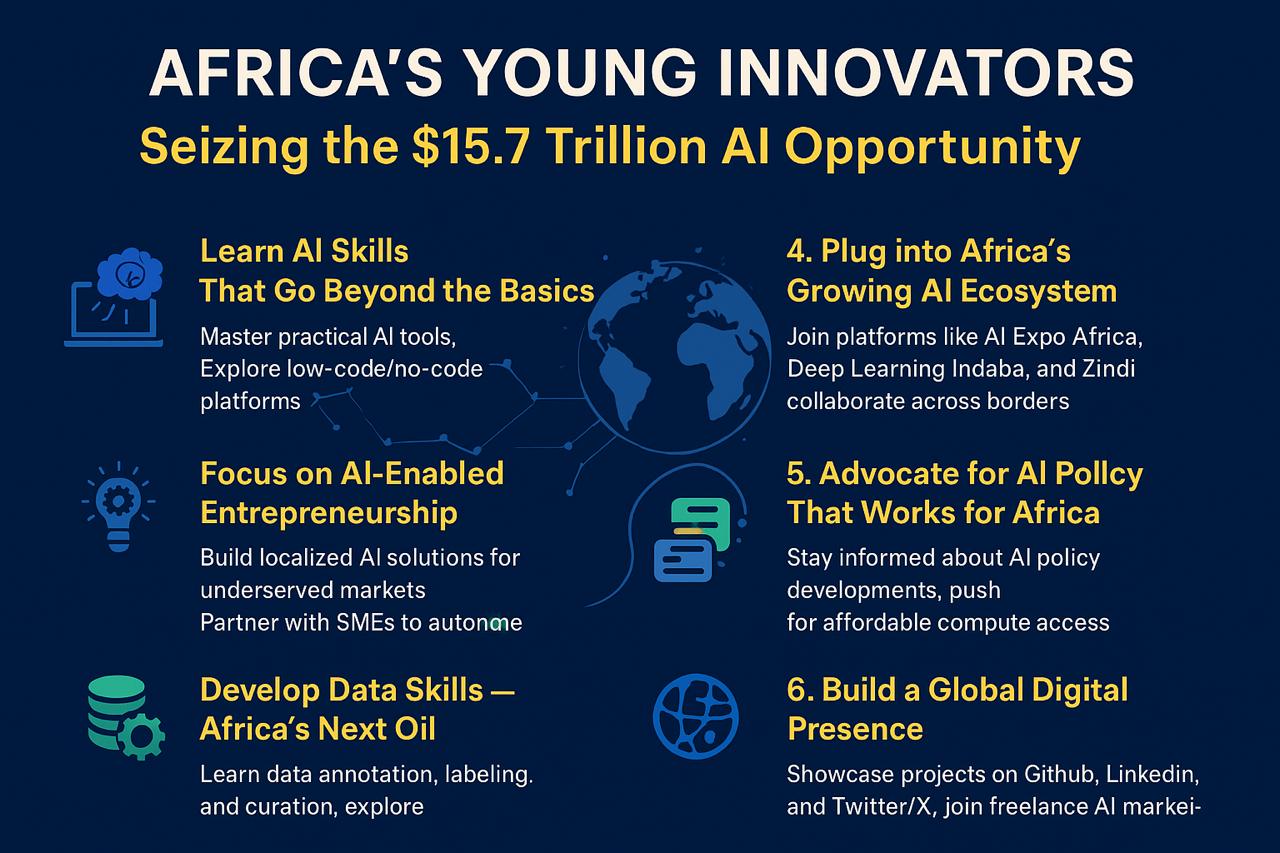If you’re looking to boost your career in AI, getting the right certification can make a big difference. These certifications not only add value to your portfolio but can also unlock opportunities you might not have considered. Below, I’ve outlined 5 top AI certifications that are recognized by industry leaders and can help you stand out. Each one caters to different skill levels and career goals, ensuring there’s something for everyone.
Top Certifications
Here are the certifications, along with why they’re valuable and who they’re best suited for:
- Stanford University AI Graduate Certificate: Ideal for those seeking a rigorous, academic program from a top university. It covers foundational AI topics like machine learning and NLP, making it great for credibility.
- Deep Learning Specialization by Andrew Ng: Perfect for intermediate learners interested in deep learning, taught by a renowned expert. It includes hands-on projects, enhancing practical skills.
- IBM Applied AI Professional Certificate: Great for beginners, focusing on practical AI applications using IBM Watson. It’s accessible and includes Python training.
- URL: IBM AI Certificate
- Google Professional Machine Learning Engineer: Aimed at advanced professionals, it focuses on deploying ML systems on Google Cloud, highly valued in industry roles.
- URL: Google ML Engineer
- Azure AI Engineer Associate: Best for developers working with cloud-based AI on Microsoft Azure, covering practical deployment skills.
- URL: Azure AI Engineer
Why These Matter
These certifications are from reputable providers and include hands-on experience, which employers value. They cater to different career paths, from academic research to industry applications, ensuring you can find one that fits your goals.
The demand for AI skills continues to surge, with over 70% of companies adopting AI, according to a McKinsey survey. This growing field offers numerous opportunities, but standing out requires more than just experience—it requires recognized credentials. This survey note dives deep into the top 5 AI certifications that can supercharge your portfolio and open doors to new career paths, based on a comprehensive analysis of authoritative sources like TechTarget, DataCamp, DigitalOcean, and eWeek. These certifications were selected for their industry relevance, practical focus, and alignment with current market needs.
Methodology and Sources
The analysis began with a web search for “top 5 AI certifications to boost career,” yielding results from reputable tech platforms. Each source was reviewed to identify certifications frequently mentioned, focusing on those with strong academic or industry backing. The final list was cross-referenced across multiple sources to ensure reliability, considering factors like provider reputation, skill level, cost, duration, and practical components. The current date, June 21, 2025, ensures all information is up-to-date, reflecting the latest trends in AI education.
Certification Breakdown
Below is a detailed breakdown of each certification, including target audience, key skills, career pathways, and additional details. This information is presented in a table for clarity, followed by a narrative explanation.
| Rank | Certification Name | Provider | Target Audience | Key Skills Covered | Career Pathways | Experience Needed | Cost | Duration | URL |
|---|---|---|---|---|---|---|---|---|---|
| 1 | Stanford University AI Graduate Certificate | Stanford University | Advanced learners, academics | AI principles, machine learning, robotics, NLP, knowledge representation | Research, academia, advanced roles | Bachelor’s degree, programming skills | ~$20,000 | 1-2 years part-time | Stanford AI Certificate |
| 2 | Deep Learning Specialization by Andrew Ng | Coursera (Andrew Ng) | Intermediate learners | Neural networks, CNN, RNN, transformers, deep learning | AI engineering, research | Intermediate Python, basic programming | $59/month through Coursera | 4-5 months, 10 hours/week | Andrew Ng Deep Learning |
| 3 | IBM Applied AI Professional Certificate | IBM (via Coursera) | Beginners | AI basics, machine learning, deep learning, IBM Watson, computer vision | Entry-level AI roles, data science | Open to all, Python knowledge helpful | $49 per month | Four months, 10 hours/week | IBM AI Certificate |
| 4 | Google Professional Machine Learning Engineer | Google Cloud | Advanced professionals | MLOps, data pipelines, model deployment on GCP | ML engineering, cloud AI roles | Python, C#, cloud experience | $200 for exam, plus materials | 3-6 months, self-paced | Google ML Engineer |
| 5 | Azure AI Engineer Associate | Microsoft | Developers, cloud AI professionals | Azure AI solutions, decision support, NLP, generative AI | Cloud AI engineering, deployment | Python, C#, Azure knowledge | $165 | Self-paced, typically 3-6 months | Azure AI Engineer |
Detailed Analysis of Each Certification
- Stanford University AI Graduate Certificate: Offered by Stanford University School of Engineering, this program is academically rigorous, covering a broad range of AI topics. It requires a bachelor’s degree and programming experience, making it ideal for those with a strong academic background. The cost is high (~$20,000), but the prestige and comprehensive curriculum, including logic, probabilistic models, and robotics, make it a standout for research and advanced roles. Its recognition by employers in academia and industry is well-documented, as seen in TechTarget’s list for 2025.
- Deep Learning Specialization by Andrew Ng: Taught by Andrew Ng, a pioneer in AI education, this Coursera specialization is highly regarded for its focus on deep learning. It includes five courses covering neural networks, CNNs, RNNs, and transformers, with practical programming assignments. At $59/month, it’s accessible and takes 4-5 months at 10 hours/week. It’s perfect for intermediate learners with Python skills, offering a pathway to AI engineering and research roles, as highlighted in DigitalOcean’s 2025 list.
- IBM Applied AI Professional Certificate: This beginner-friendly certification, offered by IBM on Coursera, is designed for those new to AI. It covers basics like machine learning, deep learning, and using IBM Watson for AI tools, including virtual assistants and computer vision. It includes an introductory Python course, making it accessible, and costs $49/month, taking four months at 10 hours/week. It’s ideal for entry-level roles, as noted in both TechTarget and eWeek’s 2025 recommendations.
- Google Professional Machine Learning Engineer: Aimed at advanced professionals, this Google Cloud certification focuses on building production-ready ML systems. It covers MLOps, data pipeline architecture, and deployment on GCP, requiring Python, C#, and cloud experience. The exam costs $200, with preparation materials additional, and typically takes 3-6 months. It’s globally recognized, valid for two years, and perfect for ML engineering roles, as seen in DigitalOcean’s list.
- Azure AI Engineer Associate: Offered by Microsoft, this certification is for developers working with cloud-based AI on Azure. It covers planning and managing AI solutions, including decision support, NLP, and generative AI, requiring Python and C# proficiency. At $165, it’s self-paced, typically taking 3-6 months. It’s highly relevant for cloud AI roles, as noted in DataCamp’s 2025 guide, reflecting the growing importance of cloud technologies.
Why These Certifications Supercharge Your Portfolio
These certifications were selected for their ability to enhance your portfolio due to several factors:
- Reputation: Providers like Stanford, Andrew Ng, IBM, Google, and Microsoft are industry leaders, ensuring recognition by employers.
- Practical Skills: All include hands-on components, such as programming assignments (Andrew Ng, IBM), labs (Google, Azure), or projects (Stanford), which are crucial for demonstrating skills.
- Career Pathways: They cater to diverse paths, from academic research (Stanford) to industry applications (IBM, Google, Azure) and deep learning specialization (Andrew Ng), ensuring alignment with various career goals.
- Market Demand: With AI adoption growing, as per a PwC survey, jobs requiring AI skills are growing three times faster than others, making these certifications highly relevant.
Considerations for Selection
When choosing, consider your current skill level, career goals, and budget. Beginners might start with IBM’s certificate, while intermediate learners could opt for Andrew Ng’s specialization. Advanced professionals might prefer Google or Azure for cloud-focused roles, and academics might aim for Stanford. Costs range from $49/month (IBM, Andrew Ng) to ~$20,000 (Stanford), with durations from a few months to two years, ensuring flexibility.
Conclusion
These 5 AI certifications, as of June 21, 2025, are poised to supercharge your portfolio and open doors to new opportunities. They reflect the latest trends in AI education, offering a mix of academic rigor, practical skills, and industry recognition. Whether you’re starting out or looking to specialize, these certifications can help you stand out in the competitive AI job market.
Key Citations
- 10 Top Artificial Intelligence Certifications And Courses For 2025
- Top AI Certifications for 2025: A Guide to Advancing Your Tech Career
- 11 Best AI Certifications in 2025 to Deepen Your Technical Knowledge
- 8 Top AI Certifications: Latest Hotlist You Won’t Want To Miss
- Stanford AI Certificate
- Andrew Ng Deep Learning
- IBM AI Certificate
- Google ML Engineer
- Azure AI Engineer




